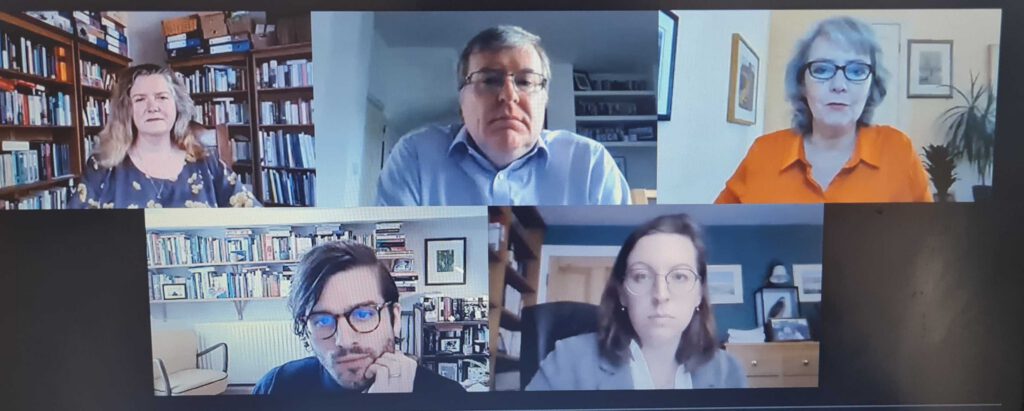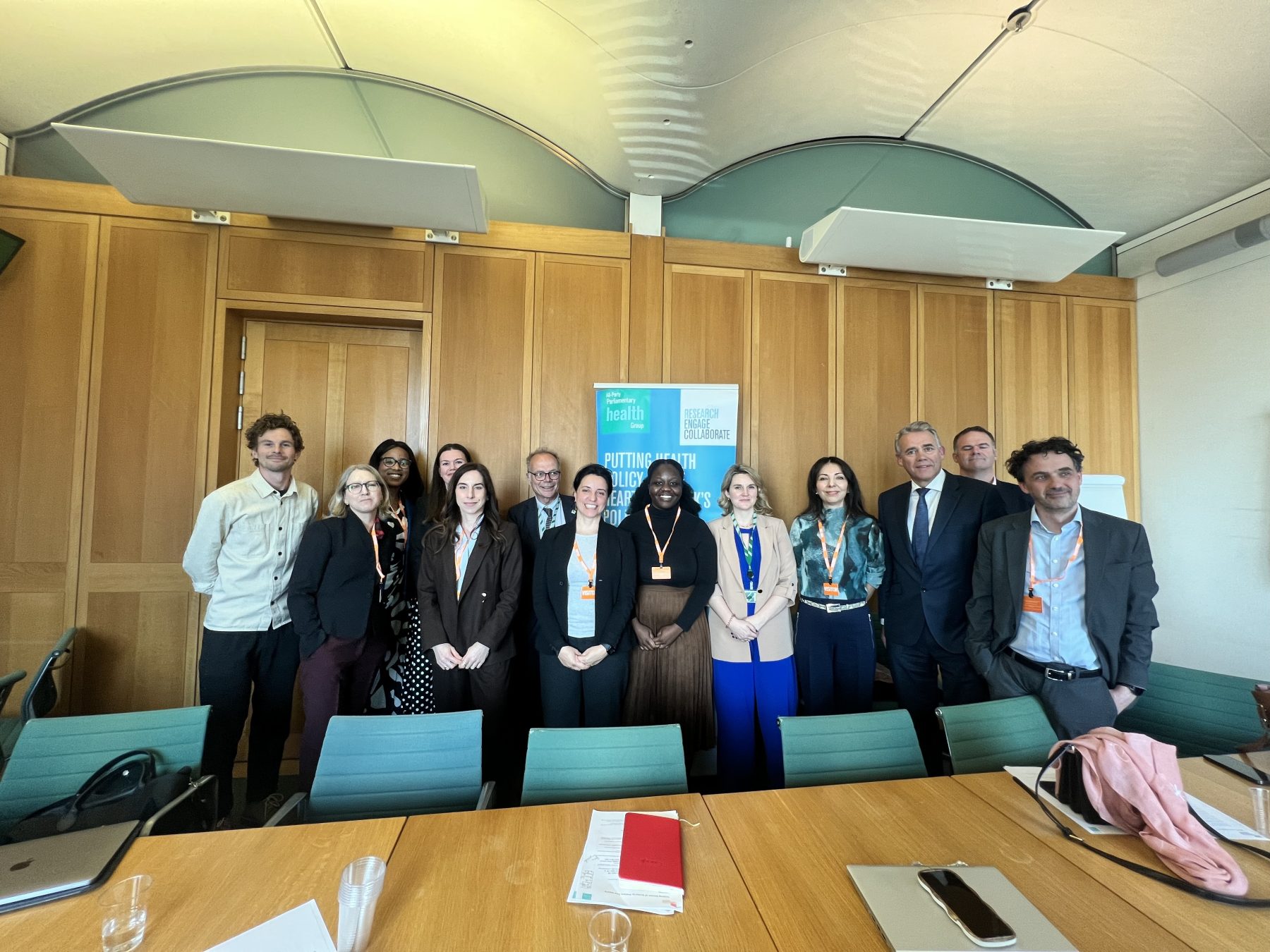On March 24th, the All-Party Health Group hosted a session examining the NHS White Papers key themes, opportunities, and challenges. Karin Smyth MP chaired a discussion featuring three key speakers: Richard Murray, CEO of the Kings Fund, Hugh Alderwick of the Health Foundation and Helen Buckingham from the Nuffield Trust.
Key themes
Speakers identified some key features in the NHS White Paper that offer potential improvements to the health service and patient experience. There was further discussion of challenges and many questions regarding the implementation and substance of the paper. These themes were identified as integration, governance, and accountability, and what is missing from the paper.
Integration
Integration is a key aim of many developed health systems as the service moves away from being a provider of episodic care to managing chronic, long term conditions. Current legislation is criticized by some as it limits integration and encourages competition for contracts and for providers to prioritise their own resources. However, integration through Integrated Care Systems (ICSs) is becoming increasingly common place and Covid-19 demonstrated how to innovate and collaborate at pace. The legislation in the white paper intends to provide a framework that reduces bureaucracy, removes competition and allows local services to work together through an ICS system.
Speakers were broadly supportive of the integration aims of the white paper. They recognised that it was not possible for the paper to answer every question about how an ICS should work if there was to be flexible working at a local or place level. Integration also depends on culture: local leaders and NHS organisations need to be willing to work together and to organise services in a collaborative way that meets the needs of the local population. The legislation recognises its own limits, you cannot legislate culture. But there are questions about who should collaborate, where, when and how.
Each stakeholder involved in strategizing and delivering health services must have clear responsibilities and accountability. This does not need to be uniform across the country to be successful, different places have different needs. However, there does need to be fair and clear responsibility for integration to work. This must also use the strengths and weaknesses of local areas, ensuring for example, that trusted stakeholders engage with the community rather then those without a history of doing so successfully.
There are some risks to introducing integrated care. These NHS reforms are one in a long line going back decades. In the middle of a global pandemic, reorganising services and creating ICSs may become a distraction. Furthermore, the proposals in this legislation do not create change alone. Local services must collaborate, and using the model, they must devolve and allocate resources accordingly to make a difference to those delivering services or working on the frontline.
The legislation does not provide a fix, it provides a framework. There is a risk that expectation is not well managed, leading stakeholders to believe that creating an ICS will, by itself decrease bureaucracy and solve problems with the health service. It would be better to think of the white paper as a potential guide to integration with the potential to improve service delivery and reduce bureaucracy, but not a long-term fix for the challenges facing health and social care.
Governance and accountability
The White Paper contains several references to handing powers of oversight and responsibility to the Secretary of State with the stated aim of increasingly transparency and improving accountability as well as enhancing public confidence in the health service. Speakers warned that in this, you may want to be careful what you wish for. Handing oversight and interventional powers to the Secretary of State risks politicizing the health service and delaying innovation or important reform. The proposals in the White Paper demonstrate how the government envisions services running, but it is important to consider what happens when things do not run smoothly.
The Secretary of State already has powers in appointment of local and NHS leaders as well as ICS officers. There is also the power to intervene and delay or prevent changes and reform. This has previously resulted in delay to beneficial reforms with an impact on patient outcomes and wellbeing. Any intervention in the health service must be clearly explained or there is a risk that appointments could be interpreted as political. The introduction of a consultation period before the implementation of any proposed reform is beneficial, . However, the aims and remit of new ministerial powers must be clear, especially where they won’t be open to parliamentary scrutiny.
The ability of the Secretary of State to reconfigure arms lengths bodies such as regulators could be beneficial. However, there is also a risk that the Secretary of State could remove professional status of some professions to make recruitment easier and this demonstrates how powers could be misused in a way that will not benefit the workforce or ensure skill mix and respect.
It is important to understand why the Secretary of State needs these extended powers above and beyond what already exists and what this may look like. The aim of integration is to deliver services according to the needs of local populations. The Secretary of State, naturally, has less local knowledge and awareness of what is important or necessary for the health of communities. Therefore, these powers should continue to be a last resort.
What is missing from the paper?
Speakers identified a lack of detail in aspects of the white paper regarding implementation and accountability structures as detailed above. However, there are further factors not directly related to the White Paper, but which are needed to ensure its success.
These can be broken down into
- Workforce
- Social Care
- Public Health
Speakers identified workforce as the most important factor in continuing to manage Covid-19, vaccination programmes and addressing the increasing diagnostic and treatment backlog. Historic workforce planning has been short term and fragmented. The health service needs a fully costed workforce plan that accounts for existing work force shortages and the exhaustion and trauma experienced by staff over the last year. Long-term workforce planning must involve staffing and population projections and reflect the short-, medium- and long-term challenges faced by the health and social care services. We must make the best possible use of existing resources, encourage retention, and embed innovation and updates to care pathways that benefit patients and staff.
Although it is largely beyond the scope of the White Paper, social care reform will also be essential for integration to be effective. The additional proposals covering data collection of those using social care, and filling data gaps on private funders are useful but it is silent on the large-scale reform of social care, long promised and yet to be revealed.
Also, outside of the scope of the paper, but equally important are the reforms to public health. The Covid-19 pandemic has highlighted the importance of population health, prevention, and health protection. The dissolution of Public Health England and the suggestion that some services will be returned to the NHS was questioned by the panel. Placing services under the Department of Health and Social Care does not, by itself, create well-funded and locally accountable services and speakers questioned how performance would be measured.
Key questions
The discussion raised a number of key questions that will be important to the passage of the bill and its success. These are as follows.
- Which organisations and stakeholders need to come together to make an ICS work? How might they collaborate and how is an ICS expected to work?
- What powers and responsibilities will stakeholders have and how will their performance be measured?
- What are the aims or expected benefits from increasing the powers available to the Secretary of State?
- When can we expect long term funded plans for workforce, social care and public health?
- When can we expect details on some of the proposals in the White Paper, the additional notes, finance and implementation?
The All-Party Health Group will be asking these questions and continuing to follow the progress of the White Paper.




